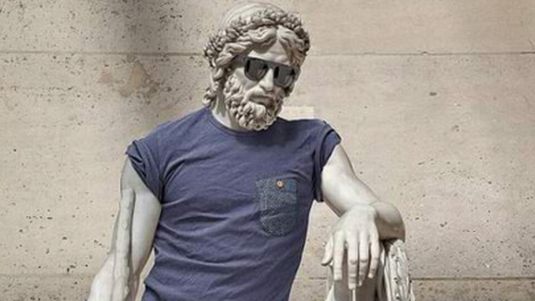How has Rouhani's Europe visit been perceived in Iran?
- Published
President Hassan Rouhani: "We would like to resume those ties and then in a way to compensate for the past"
Iranian President Hassan Rouhani has been in Italy and France this week on his first official visits to both countries. Iran is emerging from the shadows after 12 years of international trade sanctions and the president has a long shopping list. What are Iranians saying about the visit?
President Rouhani's European tour has been headline news in Iran throughout the week.
It's 16 years since an Iranian president last made a state visit to Europe, and as Iran returns to the international stage after more than a decade of sanctions, there's huge anticipation both at home and abroad about the potential changes to come.
The president has been accompanied by a team of journalists from Iran who have been charting his every move.
One was even spotted in Rome airport frantically adjusting his selfie stick to get just the right angle to do a report with the president in the background.
The focus, of course, has been on the multi-billion dollar trade deals which the president has signed with major French and Italian companies.
These include contracts for construction, carmaking and a much-heralded deal with Airbus to supply a new fleet of passenger planes.
The Iranian president is leading a 120-member delegation.
All of these will have a major impact on the lives of ordinary Iranians.
"The Italians are rushing to sign trade deals with Iran to compensate for their long absence from the Iranian market," said one report on state television news.
Who benefits?
The presidential visit is a clear signal for Iranians that their country is back where it belongs.
Many have posted messages on President Rouhani's Facebook page, thanking him for his efforts to revive Iran's international image.
But reactions have not been universally enthusiastic.
After waiting so long for some positive news, many people in Iran are still deeply cautious.
"We won't receive even 20% of the benefits of these deals," said Mohammad, a Facebook user.
"Twenty per cent?" retorted another user, Hossein. "One per cent is more likely."
Statue jokes
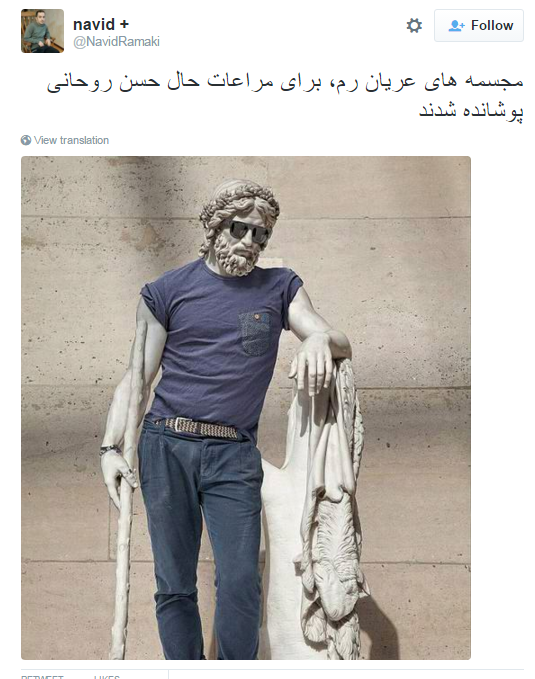
"Nude statues have been covered up to respect Hassan Rouhani," reads this tweet in Persian.
One aspect of the visit which really got people talking on social media was the news that Mr Rouhani's Italian hosts had covered up many of the nude statues in Rome's Capitoline Museum as a gesture of respect.
The Iranian sense of humour took no time to devour the story, with numerous jokes, cartoons and photoshopped images rapidly appearing.
In his latest creation for the IranWire news site, popular cartoonist Mana Neyestani poked fun at the story by adapting a famous Iranian slogan encouraging women to cover up with the hijab.
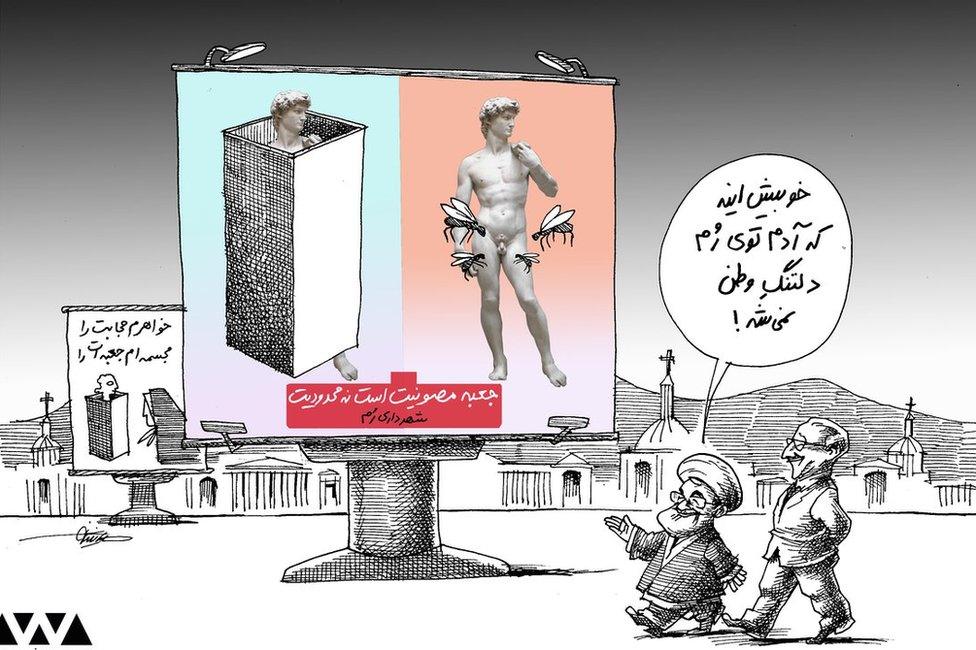
"A box doesn't restrict you, it gives you immunity," says the slogan on a wall in Rome.
"Isn't it great not to miss home when you are in Italy," says a cheerful looking President Rouhani passing by.
There were images of classical statues wearing jeans, and two that proved very popular showing the Mona Lisa, and the Eiffel Tower draped in Iranian chadors.
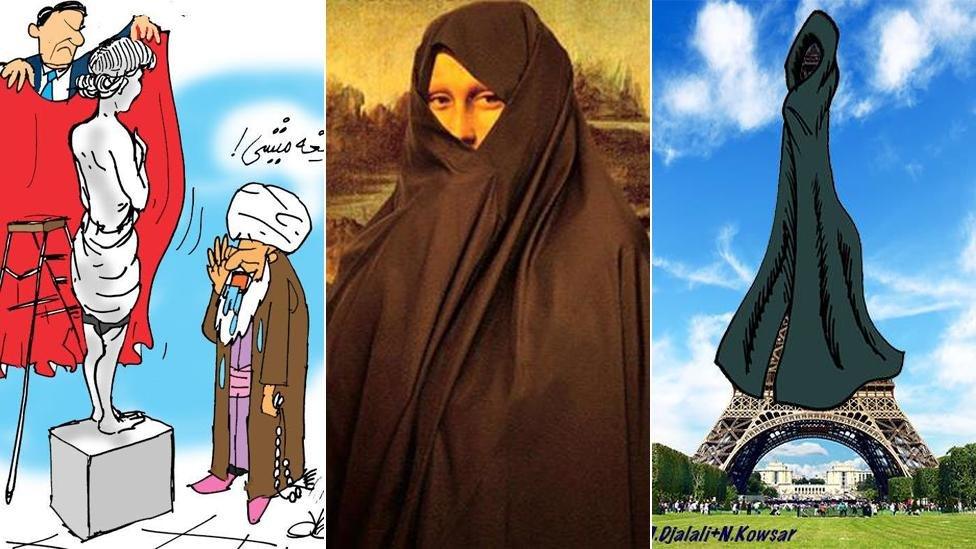
Satirical images sprang up on social media
The fact that a lunch between the French and Iranian presidents in Paris was cancelled because the hosts refused to take wine off the menu also prompted much debate.
News making?
But not everyone was laughing. Facebook user Shaghayegh spoke for many when she wrote that she was disappointed that the story about the statues being covered up had dominated coverage of the president's visit.
US-based Iranian journalist Arash Karami was also exasperated by all the fuss.
"When Italy covered nude statues for UAE prince hardly made news. When they did it for Iran it's endless hot takes," he tweeted, external.
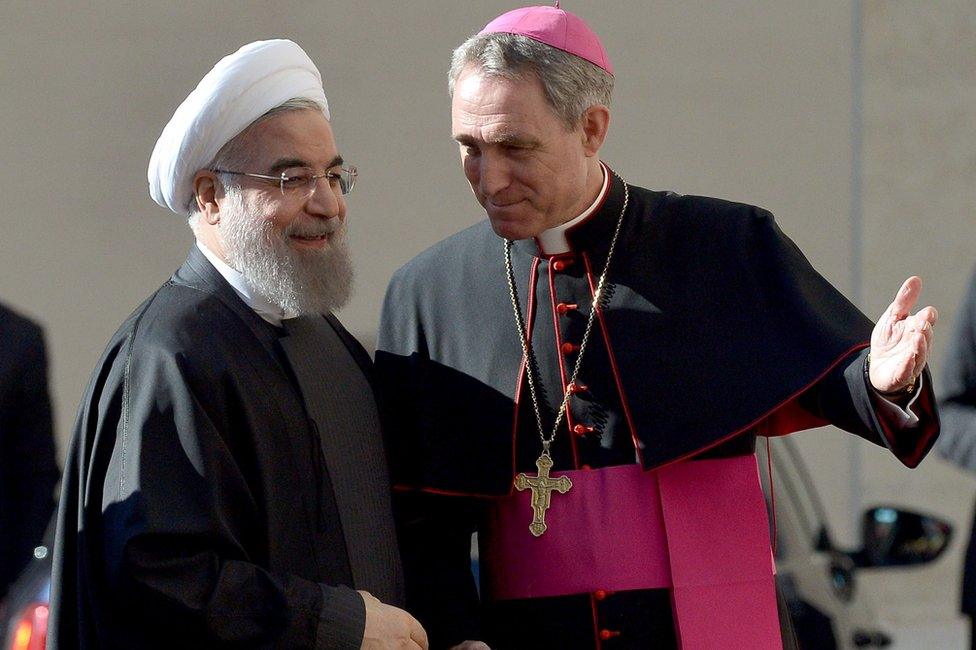
President Rouhani is hoping for a new era in Iranian relations with the rest of the world
As some observers have pointed out, beyond the jokes, the key point about the statues story is what it says about the pressures on President Rouhani back home in Iran.
As he tries to present a more open image of Iran to the world, he faces a barrage of criticism from his hardline opponents.
In this kind of atmosphere it's vital to avoid any unfortunate photo ops with nude statues that could easily be used against him.

President Rouhani
Born Hassan Fereydoon Rouhani on 12 November 1948
Has a degree in Judicial Law from Tehran University and a PhD in Constitutional Law from Glasgow Caledonian University, where his thesis was on Sharia (Islamic) law
An influential figure in Iran's defence establishment during the 1980-88 Iran-Iraq War
Secretary of the Supreme National Security Council (SNSC), the top decision-making body in Iran, from 1989 to 2005
Iran's chief nuclear negotiator, from 2003 to 2005
Resigned from the SNSC and from his role leading the nuclear talks just weeks after the election of Mahmoud Ahmadinejad, amid sharp differences with the new president
Won the 2013 presidential election after campaigning for "moderation and prudence"
Has pledged to help free reformist opposition leaders, held without trial since 2011, and to usher in an era of more freedoms in the country, though few believe much progress has been made
In July 2015 signed the landmark deal on Iran's nuclear programme with six world powers

Mild criticism
Back home in Iran, reaction to the visit in conservative circles was guarded.
Hardliners have been quick to point out that the nuclear deal would never have been reached without the support of Iran's Supreme Leader, Ali Khamenei.
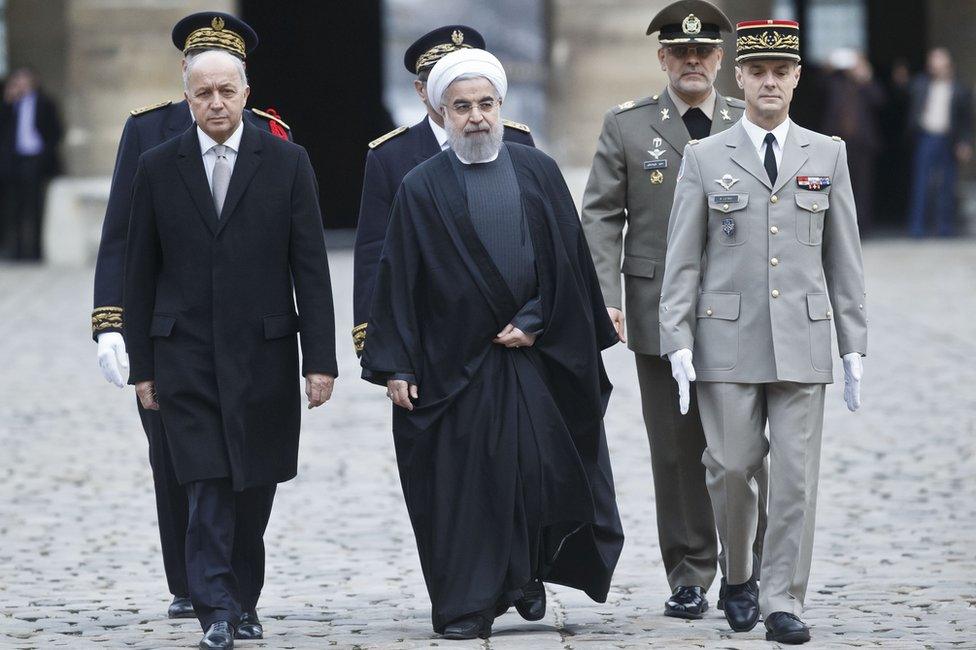
President Rouhani was welcomed in Paris with an official ceremony in front of Les Invalides
Ultra-conservative newspaper Kayhan quoted a former deputy industry minister's sceptical words about the deals mooted to be signed with French carmakers Peugeot Citroen and Renault. In the past, he said pointedly, they had not proved to be very "reliable partners".
In general, however, the tone of criticism from hardline media has been relatively mild.
Vatan-Emrooz, another hardline newspaper, even praised President Rouhani's forthright response when he was asked at a press conference in Italy whether Iran would apologise to Saudi Arabia for an attack on its embassy in Tehran.
When President Rouhani heads home he will have some important items ticked off his long shopping list. And he will carry hopes that this week's visit will be just the beginning of a new era of trade relations and engagement with the rest of the world.
- Published28 January 2016
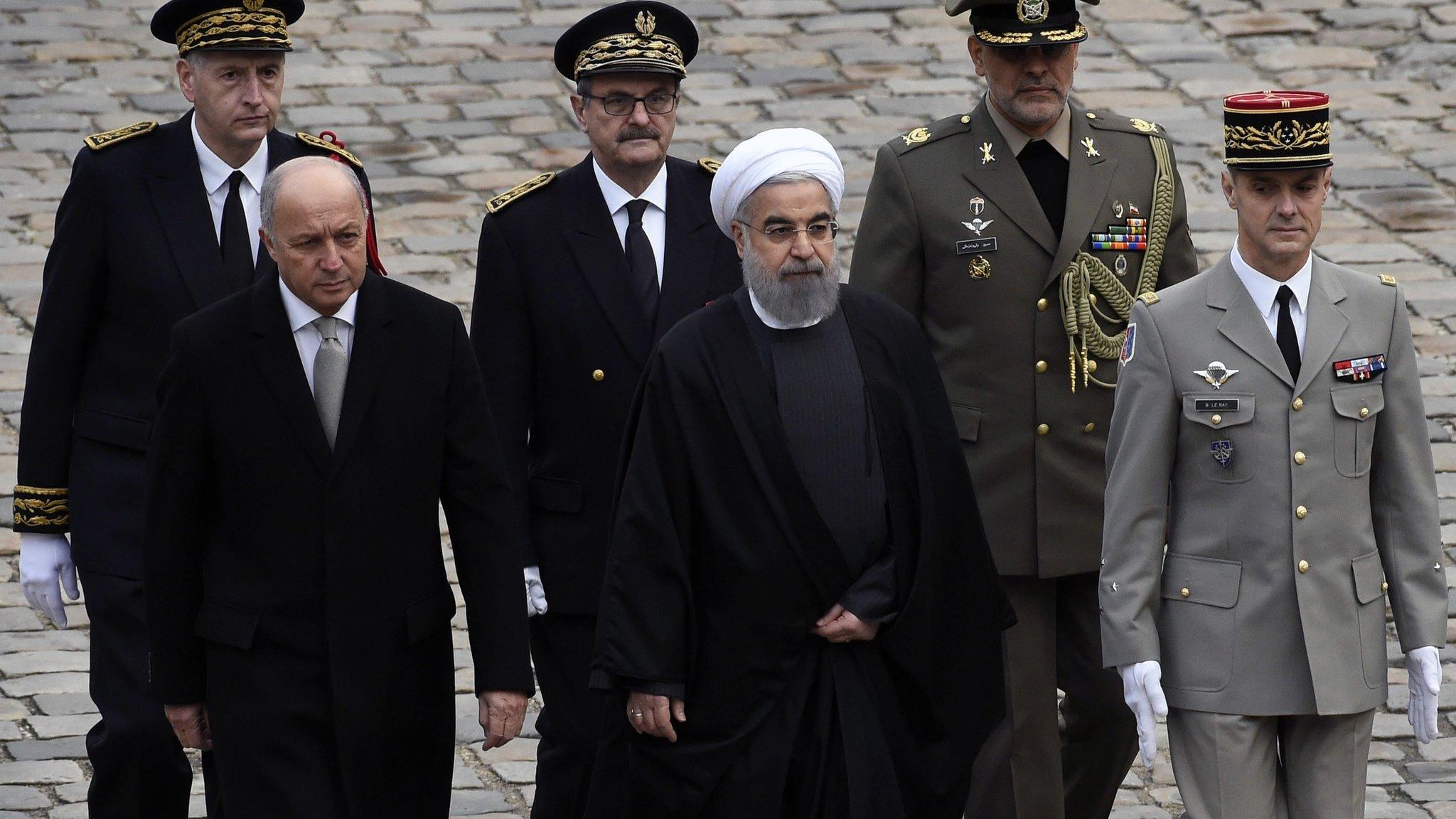
- Published27 January 2016
